10 Political Figures Who Could Not Pass a Modern Background Check
Background checks look at past behavior in attempts to predict what will happen in the future. They are used in all segments of modern society, during business transactions and credit evaluations. Landlords use background checks to investigate applicants for housing, and employers with sensitive job requirements use them to determine whether or not job applicants check-out. Organizations request background checks with specific feedback in mind, focusing on the elements of people’s histories that give them the information they need most. Your criminal history and basic information about where you have lived are included in profiles of your background, as well as your marital status and other details about your history. Political figures, even past Presidents, are not immune to the failings of human nature, landing them in hot water along the way. Would these former United States Presidents and high-profile politicians pass background checks?
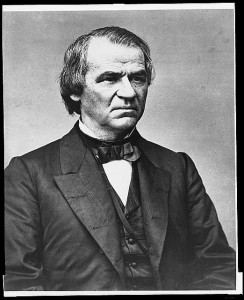
Photo courtesy of Library of Congress
- Andrew Johnson – Background checks rely on specific points of data to create profiles of people’s lives. Sometimes the whole picture tells a different story than the snapshot created during a background check, but facts and figures usually don’t lie. In the case of President Andrew Johnson, the first American President ever to be impeached, the public record might not reflect the reality of our 17thPresident’s character.
Getting impeached from the United States Presidency ranks right up near the top on a list of things you’d rather not have pop up during your background check. Johnson was impeached during a divided political period in American history. The Republican revolution occurring during the time did not bode well for the moderate Johnson, who was bullied politically and impeached without much cause. The articles of impeachment were drawn up for high crimes and misdemeanors including violation of a recently passed act of Congress with which he did not agree. The entire proceedings have been hailed as a witch-hunt against Johnson. In 1868 the House of Representative voted on impeachment, resulting in an acquittal for President Johnson, who was widely seen as the victim of a railroading effort by his political opposition. Learn more at History.com
- David Duke – This would-be political heavy-hitter is most notorious for his role with the Ku Klux Klan. In fact, his government service is limited to his elected role as a member of the Louisiana State Assembly. His visibility outside the state results from his unsuccessful attempts to gain other political offices. He ran for President in 1988 and in 1992, and as recently as the twenty-twelve elections was still playing an active role in presidential politics.
Mr. Duke is unapologetic about his positions regarding voluntary segregation and each man’s right to protect his heritage. In addition to failed presidential campaigns, Mr. Duke has attempted to gain other positions in government, including United States Senator, United States Congressman, Governor of Louisiana and State Senator. As a former Grand Wizard of the Ku Klux Klan, Duke is outspoken about race relations and also formed the group National Association for the Advancement of White People (NAAWP). He posts regularly to online forums associated with white supremacy and has spoken against Jewish control of media outlets. He was convicted of tax fraud in 2002, and sentenced to 15 months in prison. It was determined that he had been bilking money from followers, which he eventually spent on himself. In part, he told followers that he was about to lose his own home to debt and needed money to stay afloat. After raising hundreds of thousands of dollars’ worth of donations, it was determined he was not in the financial distress described. These Huffington Post stories contain detailed information about Duke.
- William Jefferson Clinton – Until Bill Clinton occupied the office of the presidency, one-hundred thirty years had passes since the impeachment of Andrew Johnson, which stood as the only such action on the United States books. Unfortunately for President Clinton, he holds the dubious distinction for being the next and only other President to be impeached.
The exploits of the former President are clearly ingrained people’s memories; in part due to the fact that he is one of the more recent Presidents to get caught in an inappropriate situation. On the other hand, the details of his indiscretions were particularly salacious, creating significantly greater public interest than the regular output from the oval office. However you slice it, the 1998 impeachment vote taken by Congress is a background check development that might be looked at as a black mark on the former President’s record. In Mr. Clinton’s case, the stain on his credibility resulted from lying about his previous activities, rather than the unconventional behavior itself. In other words, had the President come forth with his wrongdoing, or even owned up to it when it was obviously exposed, he may have been able to preserve his reputation. The Raw Story Looks at Mr. Clinton here
- Ulysses S. Grant – Extensive background checks, like those conducted by law enforcement agencies at all levels, often include assessment of friends, family and neighbors. So the crowd you associate with might have an impact on the results of your background profile – for better or worse. If there was a presidential case for running with the wrong crowd, U.S. Grant might be one of the better examples of a reputation tarnished by association.
During his presidency, Grant was rocked by several ongoing scandals. The improprieties ranged across a spectrum of inappropriate patronage and manipulating financial markets. There were serious implications for the Nation’s most important employee, even when he was not a primary player in the developing scandals. Keeping the wrong company first got Grant in trouble when he responded to a gold market situation with unapproved measures. Stock scandals followed, as the President’s Congress and Cabinet became involved in patronage deals giving them access to favorable stock manipulation. In 1875, Grant’s principles were further questioned when close associates were found to be skimming Whiskey taxes for their own use. The conditions during his presidency became so outrages that the very notion of political corruptness among his allies and advisors became known as ‘Grantism’. Having your name tied to immorality and corruption is not a positive background check outcome. The Miller Center provides profiles of Grant and other past Presidents.
- Silvio Berlusconi – Regardless of the prevailing country being governed, certain standards apply. Silvio Berlusconi is a colorful character in his own right, gifted with great wealth and charisma, but his personal record includes a few legal blemishes that may get in the way during background checks.
In addition to his convicted role as a tax evader, Mr. Berlusconi has been linked to additional improprieties. The former Italian Prime Minister has been accused of turning a blind eye toward organized crime, and for filing false accounting reports. Other accusations of bribery and corruption have followed Mr. Berlusconi through the spotlight, including allegations of influence peddling with judges and police officials. One of the most problematic legal questions dogging Mr. Berlusconi is his 2013 conviction of soliciting a minor for sex. He was found guilty of paying for sex with a 17 year old, and is prohibited from holding office during the seven and one-half year sentence he was given. The case is expected to come up for appeal, so the sentence will not be carried out until the appeal is concluded. The case is one of approximately 20 proceedings aimed at Mr. Berlusconi during his tenure in office. Mr. Berlusconi in the news.
- Richard M. Nixon – Taking a page from the Bill Clinton handbook, long before it was written, President Richard Nixon used his authority for personal pursuits of power. Long associated with political scandal, the former President gained notoriety for his early-70’s antics and over the top political gamesmanship.
The central feature of Richard Nixon’s downfall was a scandal which came to be known simply as “Watergate”. The reference is to the Watergate Hotel and business buildings where the most famous abuse of Presidential power occurred. In 1972, a group of five men broke-in to the Democratic National Headquarters located within the Watergate complex. The break-in and the President’s subsequent attachment to the ensuing cover-up effort brought Nixon to the mercy of his political adversaries. Had he not resigned in 1974, it is almost certain he would have been impeached for the cover-up and lies associated with Watergate. White House profile of the 37th President.
- Albert Fall – Although not a household name, Albert Fall will live in infamy for his scandal-plagued tenure as Warren Harding’s Secretary of the Interior. It is not uncommon for politicians to bring their own supporters with them once they gain office. In the case of the Harding Presidency, prestigious cabinet posts were meted out to friends and supporters of the President. As a result of hiring associates from back home in Ohio, Warren Harding had an administration uncharacteristically wrought with ethics difficulties. Multiple cabinet officials were implicated in a variety of improprieties resulting in disciplinary action, the worst of whom was Albert Fall.
While some of the corrupt cabinet members made their own criminal names, it was the Teapot Dome scandal that brought down Fall and others Harding associates. Fall was the first-ever cabinet member convicted of a crime, for his role in the Teapot Dome affair. In exchange for control of the federal oil reserves in Teapot Dome, Wyoming, Albert Fall had taken a bribe from Mr. Harry F. Sinclair. Mr. Fall served two years in prison as the most famed member of Harding’s “Ohio Gang” Mr. Fall’s interesting role in history is studied here.
- Ronald Reagan – Business dealings are regulated in most cases, but certainly subject to transparency in almost all cases. What Ronald Reagan learned during his tenure as President of the United States is that is does matter who you do business with. Guilt by association is a powerful elixir for the American public, so if your bedfellows include Contra rebels and Iranian arms dealers you will be held accountable.
In 1986 it came to light that the Reagan administration was active in a side business unknown to American citizens. Top players in the administration, it turns out, were selling arms to Iran. The practice was problematic for several reasons, not the least of which concerned an embargo on Iran strictly prohibiting it. How much the Commander in Chief knew, and when, is still the subject of debate, but there is another aspect of the illegal activity that disturbs some analysts even more. Some of the officials involved in the Persian arms deals also advocated for using the money in very specific ways. Half a world away, arms profits were allegedly targeted for funding Contra rebels in Nicaragua. Not only was the public left out of the loop, but the Congress had already acted decisively prohibiting further funding for Contras. The Iran-Contra Affair, or Irangate, as the episode became known, remains a blemish on the former President’s background. For all the facts about the former President, see his profile at the Reagan Library.
- Jesse Jackson Jr. – Perhaps no civil rights advocate has shared the podium with more Presidents and influential politicians than the Reverend Jesse Jackson. Wielding great power across the country, it was in Illinois that his son Jesse Jackson Jr. was to make a name for himself in politics. Despite the head-start given him by his family name, and the morality espoused by his father, politics did not work out well for the younger Jackson.
Convicted felons are not high performers on background checks. And so it goes for Mr. Jackson, who was convicted of several crimes in office. After leading the charge in Congress for the 2nd District of Illinois, the Congressman was investigated for wrongdoing in fall of 2012. He subsequently resigned, amid bizarre absences and claims of medical disorders ranging from bi-polar disorder to gastrointestinal distress. As it turns out Mr. Jackson was funding an extravagant lifestyle, along with his wife, using campaign donations from his re-election fund. As a result, the former co-chairman of President Barrack Obama’s election campaign was sentenced to 30 months in prison. In addition to the misappropriation of funds, Mr. Jackson was convicted of mail and wire fraud. For her role in the scheme, which netted about seven-hundred fifty thousand dollars’ worth of illegal spending, Sandi Jackson received 12 months in jail.
- George W. Bush – President George Bush had his share of detractors during his time in office. Sentiment against his father aside, Bush had his own negative impact on people’s perception of him. The truth is that his legal troubles started long before the whole weapons of mass destruction problem came to light.
Bush was arrested at the age of 20 for some drunken antics with friends, which resulted in the group stealing some items from a department store. The charges were dropped. In 1976, however, Bush was cited for operating a motor vehicle while intoxicated near his family’s Kennebunkport home. The drunk-driving conviction alone, nor his acknowledgement that he overused alcohol until age 40, are not enough to count the younger Bush out entirely, but there additional concerns about his substance use. Some sources indicate that the former President may have used drugs like Cocaine, which could be problematic for passing standardized FBI background screenings.

Photo courtesy of Wikimedia Commons
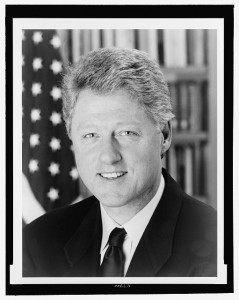
Photo courtesy of Library of Congress

Photo courtesy of Library of Congress
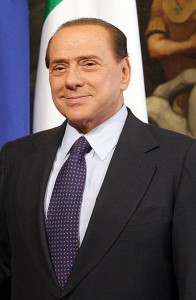
Photo courtesy of Wikimedia Commons
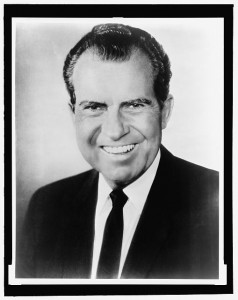
Photo courtesy of Library of Congress
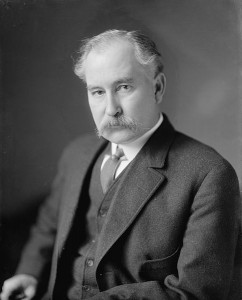
Photo courtesy of Wikimedia Commons
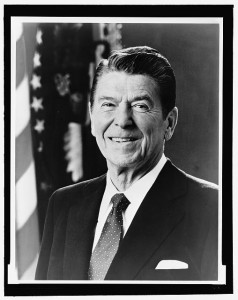
Photo Courtesy of Library of Congress

Photo Courtesy of Library of Congress
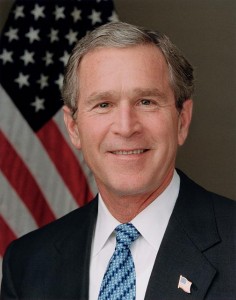
Photo Courtesy of Library of Congress

